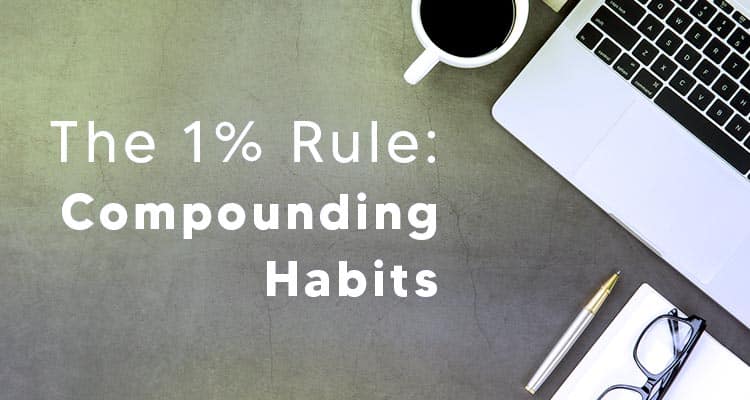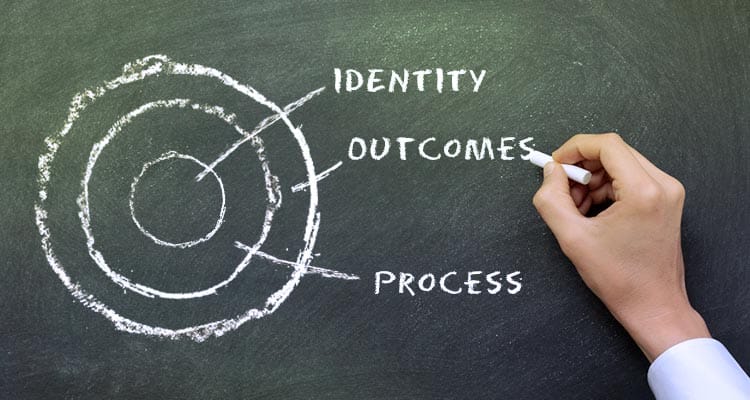How hard is it to become successful? A lot of people want similar things — money, time, peace of mind. But unfortunately, not everyone can get it. We are fortunate in remote working because, in a way, we can build our dream life in the comforts of our home.
But are you still having a difficult time with your routine? Are you easily distracted at home? Do you have the habits that can make you successful? More often than not, we all have the same dilemma.
But these habits are essential in our wealth building. So is there an easier way to build these key practices? The book “Atomic Habits: An Easy & Proven Way to Build Good Habits & Break Bad Ones” by James Clear will give you insights into that.
Habit Building
We all know our habits will dictate our future. Great habits will bring great results, while negative ones will eventually lead to our demise. Therefore, to become successful, we must have good habits overpowering bad ones.
And to build a habit, it takes roughly 66 days to draw out the negative to the positive one. As a result, a lot of people fail because, let’s face it, it’s hard to change our ways. James Clear provided key insights in his book to change this notion.
He advocates that small tweaks and single-action improvements than one-time grand habit gestures. It’s better to have hundreds of small sustainable habits than a few big unfeasible ones.
With that, here are 4 concepts from Atomic habits that will make your remote working career successful.

The 1% Rule: Compounding Habits
We all know compounding interest. The more money we put into an interest-bearing investment, the more it grows to compound in the long run.
Similar to that, habits are a compound interest of self-improvement. So yes, if you can have big habits, that’s fine. But it’s better to have a few ones that are quickly done. I mean, if you improve 1% per day, that’s a 365% improvement in a year!
You might not see the changes right now, but it magnifies as time goes by. The problem is that many people quit or go back to other bad habits because of this lack of results.
Understand that you will create new habits that will lead to the goal you want as you push through. And for the following concepts, James Clear made a clear path to creating these habits in the most sustainable way possible.

Screw your Goals and Focus on Systems
Have you wondered why people have the same goal, but not all reach them? It’s because of what they focus on. James Clear boldly states to screw your goals and focus on systems. And here is why.
Goals can only give you momentary change. Do you know someone who had a fitness goal? And once he got it, he went back to his old ways and rebounded far worse than before. Quite a lot, I should say.
They are so deprived that reaching a goal felt like freedom. When you’re free, do you go back to prison? Not really. You slide back to your old ways.
And this is the same thing when you don’t reach your goal. If it’s not giving the result you wanted, why continue?
Let’s put it in a different perspective. When you focus on systems, like instilling processes in your automatic daily routine, it’s much more sustainable since you don’t have to think about it.
For example, if you want to exercise for fitness, instead of focusing on your “Lose 10 lbs goal,” why not “I will do my indoor cycling cardio while watching Netflix.” It’s much more enticing and doable.
And if you’re consistent enough, it might even lead to fat loss. As James Clear said:
“The purpose of setting goals is to win the game. The purpose of building systems is to continue playing the game. True long-term thinking is goal-less thinking.”

Identities Change is the North Star of Habit Change
But are systems and enough to build a long-lasting habit? Not necessarily. James clear showed three stages.
A lot of people focus on the outcome, like losing weight. And then find the processes to do just that. They fail because their identity is not congruent with the lifestyle needed to sustain the results after getting the goal. That’s why they slide back.
Some get no results. They quit because there’s no outcome.

James Clear wants you to start with your identity. For example, you decided to become a healthy person. That’s your identity.
With your identity, you do things that are in line with it. So when you eat food, you ask yourself, is this what a healthy person eats? Do you healthy people exercise?
If you start incorporating your processes and strategies with your identity, it’s much effortless.

4 Fundamental Laws of Behavior Change
Now that we understand the underlying principles, it’s time to use some techniques in action. James Clear has 4 fundamental principles of behavior change.
- Cue – triggers the brain
- Craving – motivational force
- Response – doing the action or habit
- Reward – reward for doing the habit
Above is the cycle. Like seeing food, a cue makes you crave to eat it. Then, later on, you eat it and get rewarded with a satisfying feeling.
So to hack this process for ourselves, James Clear showed some techniques. Here are some.

Make It Obvious
If you want to work on more projects, you may want to make it obvious and easy to do. What do I mean?
Imagine working in your dining area where you can see the TV playing your favorite Netflix show. Would you be productive? Or would you binge-watch instead? For most, it will be the latter.
If you want to work better, your environment should be designed to make it obvious and easy. Put your laptop in a place where there is less distraction. Maybe, it’s an extra room or a view away from your bed. You can put it up a notch by putting your goals in your workplace.
You can even download an app for Pomodoro Technique to stop you from scrolling your social media. In this way, you are more inclined to finish your tasks.
The essence is for bad habits make it harder to do. For good habits, make it easy and obvious.

Make it Attractive
James Clear said that “What is Immediately Rewarded is Repeated, What is Immediately Punished is Avoided.” So try to work on this rewards system for habits you want to keep.
For example, if you want to exercise, you can bundle it with things you like to do. Let’s say you like playing an online game. You can reward yourself a few minutes of game time whenever you finish a set. In this way, you are incorporating an attractive compensation every time you did well.

Conclusion
Are you ready to build your habits? You now can by just understanding how we develop habits and by making simple changes every day. You’ll never know what a few changes done consistently can do with our overall results. Cheers!


